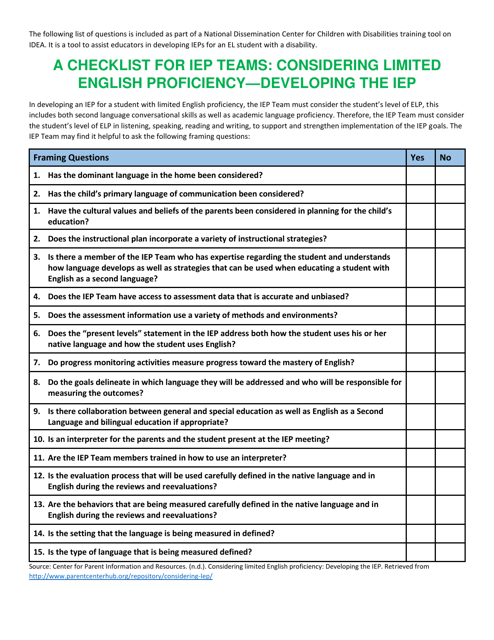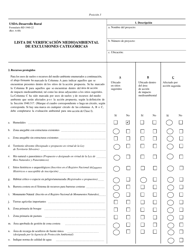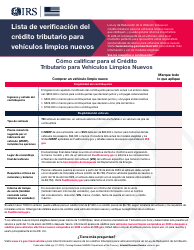A Checklist for Iep Teams: Considering Limited English Proficiency - Developing the Iep - Rhode Island
A Checklist for Iep Teams: Considering Limited English Proficiency - Developing the Iep is a legal document that was released by the Rhode Island Department of Education - a government authority operating within Rhode Island.
FAQ
Q: What is an IEP?
A: An IEP stands for Individualized Education Program. It is a written plan that outlines the special education services and accommodations a student will receive.
Q: What does limited English proficiency mean?
A: Limited English proficiency refers to a student's limited ability to communicate effectively in English, often due to being a non-native English speaker or having a different language background.
Q: Why is it important to consider limited English proficiency when developing an IEP?
A: Considering limited English proficiency is important because it ensures that students with language barriers receive appropriate support and accommodations to access their education effectively.
Q: Who is responsible for considering limited English proficiency in the IEP process?
A: The IEP team, which typically includes parents, teachers, special education professionals, and other relevant parties, is responsible for considering limited English proficiency.
Q: What are some strategies for supporting students with limited English proficiency in the IEP process?
A: Strategies may include providing language assessments, offering language support services, using interpreters or translators, and using culturally responsive teaching practices.
Q: Are there any laws or regulations that address the rights of students with limited English proficiency?
A: Yes, federal laws such as the Individuals with Disabilities Education Act (IDEA) and Title VI of the Civil Rights Act protect the rights of students with limited English proficiency.
Q: What are some considerations for assessing a student's English proficiency?
A: Considerations may include the student's language proficiency, academic proficiency, cultural background, and any previous assessments or evaluations.
Q: How can parents advocate for their child with limited English proficiency during the IEP process?
A: Parents can advocate by actively participating in the IEP meetings, expressing their concerns or suggestions, and ensuring that their child's language needs are properly addressed in the IEP.
Q: What happens after the IEP is developed for a student with limited English proficiency?
A: After the IEP is developed, the school should implement the necessary services and accommodations outlined in the plan to support the student's academic progress and language development.
Form Details:
- The latest edition currently provided by the Rhode Island Department of Education;
- Ready to use and print;
- Easy to customize;
- Compatible with most PDF-viewing applications;
- Fill out the form in our online filing application.
Download a printable version of the form by clicking the link below or browse more documents and templates provided by the Rhode Island Department of Education.



